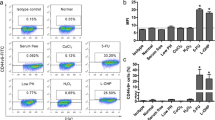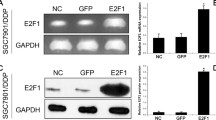Abstract
Purpose: Evidence suggests that viral proteins such as simian virus large T-antigen (SV40 TAg) play a role in the response of cancer cells to chemotherapeutic agents. In this study, we investigated whether SV40 TAg-immortalized human mesothelial cells express drug resistance-related proteins and display resistance to chemotherapy, and whether SV40 TAg transformation affects apoptosis. Methods: We determined the mRNA and protein levels of the multidrug resistance-associated protein (MRP), γ-glutamylcysteine synthetase heavy subunit (γ-GCS h ), and P-glycoprotein (product of the MDR1 gene) by RT-PCR and Western blotting, respectively, in normal human mesothelial (NHM) cell and SV40 TAg-transformed human mesothelial (Met-5A) cells. The effect of increasing concentrations of doxorubicin (DOX) on these cells was investigated using an MTT cytotoxicity assay, and the glutathione (GSH) content was measured spectrophotometrically. DOX accumulation in these cells was measured by treating the cells with [14C]DOX followed by scintillation counting. Cytoplasmic DNA fragmentation due to apoptosis following DOX treatment of the cells was quantitated by ELISA. Results: We showed that the MRP and γ-GCS h genes, but not MDR1, are coordinately overexpressed in Met-5A cells compared with NHM cells. Expression of MRP protein as detected by an anti-MRP antibody correlated with increased GSH levels and decreased accumulation of [14C]DOX in Met-5A cells compared with NHM cells. However, Met-5A cells were twofold more sensitive to DOX than NHM cells. In addition, quantitative measurement of apoptosis when cells were treated with 0.05 and 0.5 μM DOX revealed that drug-induced apoptotic cell death was increased about 1.4- and 3.0-fold, respectively, in Met-5A cells compared with NHM cells. Conclusions: These results suggest that increased levels of apoptosis might help overcome the DOX resistance effects of MRP/γ-GCS h overexpression in SV40 TAg-transformed Met-5A cells.
Similar content being viewed by others
Author information
Authors and Affiliations
Additional information
Received: 29 October 1997 / Accepted: 9 March 1998
Rights and permissions
About this article
Cite this article
Ogretmen, B., Bahadori, H., McCauley, M. et al. Lack of correlation of MRP and γ-glutamylcysteine synthetase overexpression with doxorubicin resistance due to increased apoptosis in SV40 large T-antigen-transformed human mesothelial cells. Cancer Chemother Pharmacol 42, 441–446 (1998). https://doi.org/10.1007/s002800050843
Issue Date:
DOI: https://doi.org/10.1007/s002800050843




